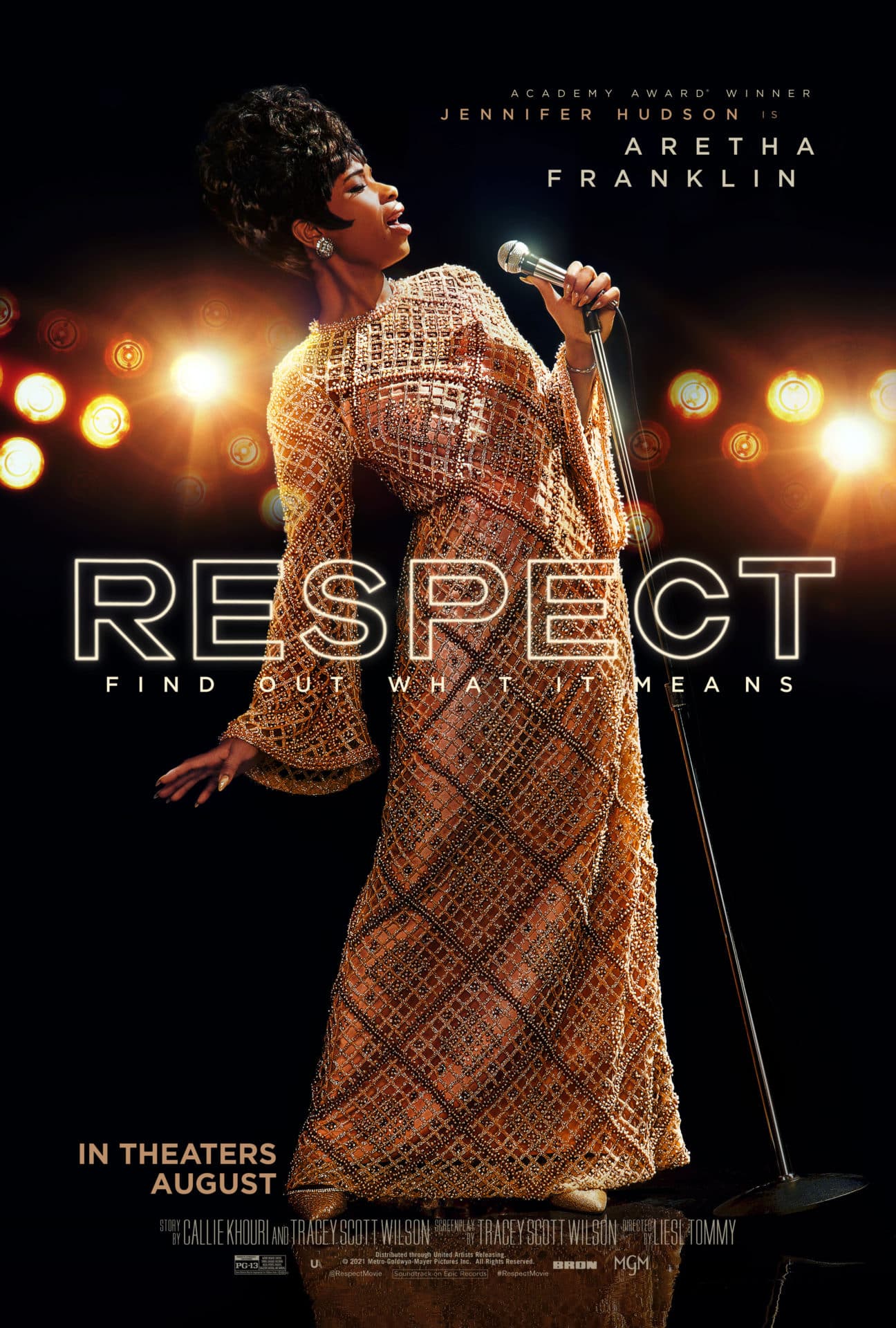
- Starring
- Jennifer Hudson, Forest Whitaker, Audra McDonald
- Writer
- Tracey Scott Wilson
- Director
- Tracey Scott Wilson
- Rating
- PG (Canada), PG-13 (United States)
- Running Time
- 145 minutes
- Release Date
- August 13th, 2021
Overall Score
Rating Summary
As problematic as Bohemian Rhapsody was with the firing of director Bryan Singer and its controversial portrayal of Freddie Mercury, audiences were infatuated with Rami Malek’s Oscar-winning performance of the lead singer, as well as the performances of their most iconic songs. But to studios, the only factor that mattered was that it made over $900 million at the box office, proving that musical biopics can make a profit. MGM saw dollar signs, so after many years in development, they have released Respect, which tells the life of the Queen of Soul, Aretha Franklin, from her childhood, singing in Church, to Madison Square Garden, showing her personal and professional hardships along the way.
Aretha Franklin has stated many times that Jennifer Hudson is the only person she wanted to portray her in a movie. Needless to say with Respect, Hudson had big shoes to fill, but fortunately, she is more than up to the task. Besides her powerful voice, Hudson embodies Franklin’s vulnerability extremely well, which as the forefront during key scenes with Ted White, her first husband (Marlon Wayans). An Oscar nomination may not be waiting for her, but she should be proud of her performance as one of the most important African-American artists of all time. Whitaker is given a lot to do as Aretha’s father, C.L. Franklin, and he is extremely versatile, being grounded but not scared to outburst at Aretha for her life choices when necessary. It gives a secondary hardship in Aretha’s life in addition to her own personal demons. Beyond them, everyone else is serviceable, but do not do anything special. Musical talents such as McDonald, Tituss Burgess, and Mary J. Blige are completely underutilized and should have been given more screen time as Aretha’s mother Barbara, Reverend Dr. James Cleveland. and Dinah Washington respectively.
At a whopping 2 hours and 25 minutes, Respect spends quite a bit of its time during Aretha’s youth. A lot of time is dedicated to her role in the civil rights movement and how that impacted her rise to fame. While Tracey Scott Wilson tried to allot of screen time for Aretha’s personal life so it is easy to connect with her on a humane level but it does nothing more than padding up its bloated runtime. So much time is given to her home life, and seeing the same type of scenes over and over again instead of performances of her famous songs gets tedious and repetitive after some time. As a result, the film fails to balance so many aspects of Aretha’s life that it is hard to figure out what kind of movie it is trying to be sometimes.
Musical biopics follow such a specific formula to the point where they have been parodied in other movies and shows; A young prodigy is told they will never have hit songs, they immediately become a global superstar, struggle to balance their personal life and fame, resort to an addiction of some kind, and finally put on a big concert to redeem themselves. Rocketman made the bold choice to be an R-rated musical fantasy, and it seemed like the genre was going in the right direction. However, this film takes a step back, caring more about box-office revenue with a PG rating that forces dramatic moments to be sanitized for general audiences. With someone who changed the music industry with soulful gospel and religious music, nothing about Respect is unique enough to set it apart and make it as memorable as the artist it is honoring.
In the end, Jennifer Hudson does everything she can to carry Respect, but it plays it too safe for its own good and will be forgotten about by the end of the credits.
still courtesy of MGM
Follow me on Twitter and Letterboxd and check out my blog entertainmentessence.com.
If you liked this, please read our other reviews here and don’t forget to follow us on Twitter or Instagram or like us on Facebook.
Discover more from
Subscribe to get the latest posts sent to your email.
